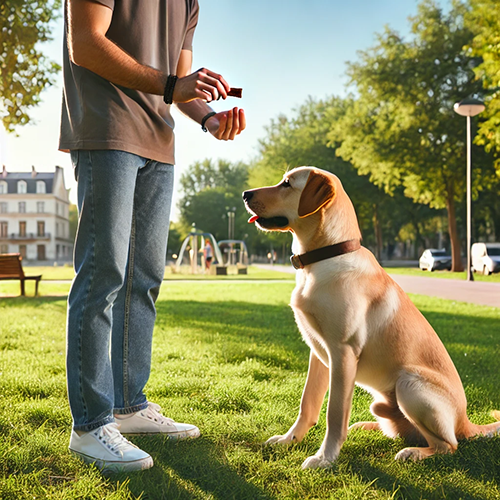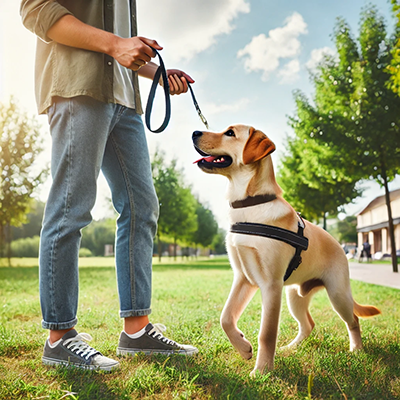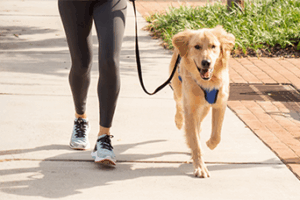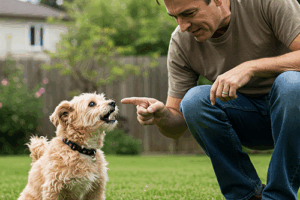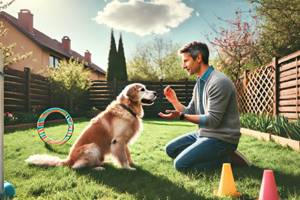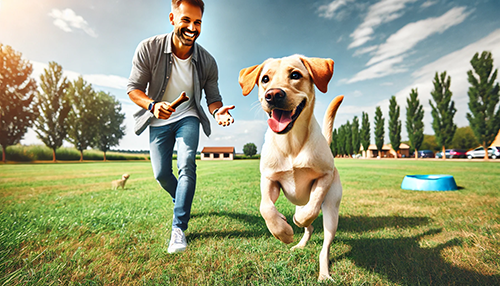
Labrador training is an enjoyable and rewarding experience. These dogs are intelligent, loyal, and eager to please, making them excellent training candidates. You can instruct your Labrador to be a well-mannered and obedient companion with patience, consistency, and a positive attitude. From housebreaking and obedience to agility and tricks, you will discover the tools and techniques you need to have a successful Labrador training experience.
Labrador Retreiver Training
Labrador training is a great way to ensure a happy and well-behaved pet. To get the most out of training sessions, starting early and using positive reinforcement, such as treats and praise, to reward desired behaviors is essential. Labradors are highly food-motivated, so they use treats throughout training to keep them focused and driven. Break commands into smaller, easier-to-understand pieces to make training more engaging and use various training methods, such as clicker training.
Establishing rules and boundaries early on is also essential to establishing yourself as the pack leader. Exercise your Labrador regularly to help burn off extra energy and maintain focus during training. Above all, be patient and consistent with training to ensure the best results. Labrador training can be a fun and satisfying experience for the pet and the owner with the right approach.
What Age Should I Start Training My Labrador
Labrador training is an integral part of being a responsible pet owner. Generally, Labradors can begin basic training between 8 and 12 weeks of age. Starting with basic commands such as sit, stay, come, and leave is crucial. Keep Labrador training sessions short and positive, no more than 15 minutes at a time. To keep your Labrador interested in training, mix up the activities and add new commands as they become more proficient. Socialization is also important to ensure your Lab is comfortable around people and other animals. With consistent training and reward, you should have a well-behaved Labrador by the time they reach adulthood.
What are the Most Effective Methods for Labrador Training
It’s essential to be prepared and to have the right approach. Consistency is the key to successful Labrador training, and obedience training is the best place to start. Obedience training is the foundation for future training and will help your Labrador understand basic commands.
Reward good behavior with treats and praise to reinforce the behavior you want. Use consistent commands each time, and be patient – Labrador training takes time, and your Labrador won’t learn everything overnight.
These active dogs need lots of physical activity, and you should provide ample opportunities for them to run, play, and explore. Treats can be a great way to reward your Labrador, but don’t overdo it – too many treats can lead to weight gain and other health issues.
Labrador training requires patience, consistency, and a positive attitude. With the right approach, you’ll have a well-trained dog who is a delight to be around.
How Often Should I Practice Commands with My Labrador
It is essential to start slowly, with short sessions of just five minutes a day, and gradually increase the length of the sessions. Practicing commands indoors and outdoors is vital to ensure your Labrador responds to commands in any environment.
To ensure your Labrador is responding correctly, practice commands in various settings and with different levels of distraction. When giving orders, speak in a clear, firm voice, and remember to praise your Labrador for good behavior. Always use the same word or phrase when issuing commands to ensure your Labrador understands.
Basic demands such as sit, stay, and come should be practiced, as well as more complex commands such as heel and fetch. Ensure each session is fun and interactive to keep your Labrador engaged and motivated. Regular practice is critical to ensuring your Labrador responds correctly to commands and behaves in any situation. With patience, dedication, and consistency, you and your Labrador can develop a strong bond that will last a lifetime.
Are There Any Specific Challenges Associated with Training a Labrador
Labs are known for their boundless energy, which can make it difficult for them to focus during training sessions. Labs also have a short attention span, so keeping Labrador training sessions short and sweet is essential.
Labs can quickly become distracted by their surroundings, so it’s essential to train them in a quiet location free of distractions. Finally, Labs can suffer from separation anxiety if they’re left alone for too long, so gradually increasing the time they’re left alone during training is vital. With the right approach, you can successfully train your Labrador and create a special bond with your pup.
How Can I Ensure That My Labrador Remains Obedient Over Time
Establishing a consistent routine of commands and rewards is vital. When giving directions, articulate them consistently and ensure your Labrador understands and follows them.
Conversely, provide appropriate punishment if your dog does not obey. Furthermore, spending quality time with your Labrador is vital to building a solid bond. This bond will help when training your canine companion and will be an essential part of the process.
Ignore unwanted behaviors and praise wanted ones. Additionally, take your Labrador to regular obedience classes to review commands and learn new ones. It is also important to regularly practice commands with your Labrador to keep them sharp. When practicing, avoid giving too many orders at once to prevent confusion and frustration. Finally, spend time playing with your Labrador to keep their obedience skills sharp and to have fun.
Common Dog Training for Labrador Behavior Problems
Remember that Labradors are solid and intelligent dogs who must be taught how to behave correctly. Here are some tips for successful Labrador training:
Pulling on a leash: Labradors are known for their strength, so leash training is essential for teaching them to walk on a lead without pulling. Positive reinforcement is critical when introducing them to walking nicely; rewarding them for good behavior will help them learn.
Jumping: Labradors love to jump up and greet people, but this can be dangerous and must be discouraged. Teach your Labrador to ‘sit’ and reward them for good behavior to prevent them from jumping.
Chewing: Labradors are known for their strong chewing habits and must be taught what items are appropriate to chew on and which are not. Ensure any items unsuitable for chewing are kept out of reach and provide them with plenty of chew toys to direct their chewing behavior.
Separation anxiety: Labradors don’t like to be left alone and can become anxious when separated from their owners. Start by leaving them alone for short periods and gradually increase the time they are left alone. Leave them with appropriate chew toys and offer them a treat when you return to help them learn that you will always return.
Digging: Labradors love to dig and must be taught that it is unacceptable at home. Exercise them regularly to help tire them out, and provide plenty of chew toys to help keep them entertained.
Barking: Labradors are known for their loud barking and must be taught when it is inappropriate to bark. If your Labrador barks unnecessarily, try distracting it with a toy or a treat and rewarding it for not barking.
Training: Labradors are intelligent and can learn quickly, but they need consistent training to ensure they understand what is expected. Use positive reinforcement and rewards to encourage good behavior, and be patient and consistent with your training.
DISCLAIMER: The information on shihtzudoginformation.com is intended for general knowledge and informational purposes only. The content is not a substitute for professional veterinary advice, diagnosis, or treatment. Always seek the advice of your veterinarian or other qualified animal health provider with any questions you may have regarding your dog’s health or medical condition.
References
- Effects of Early Enrichment on Canine Behavior: https://www.ncbi.nlm.nih.gov/pmc/articles/PMC4129980
- Survey of the Use and Outcome of Confrontational and Non-Confrontational Training Methods in Client-Owned Dogs Showing Undesirable Behaviors: https://www.ncbi.nlm.nih.gov/pmc/articles/PMC3108520
- Canine Obesity: https://pubmed.ncbi.nlm.nih.gov/22929609

